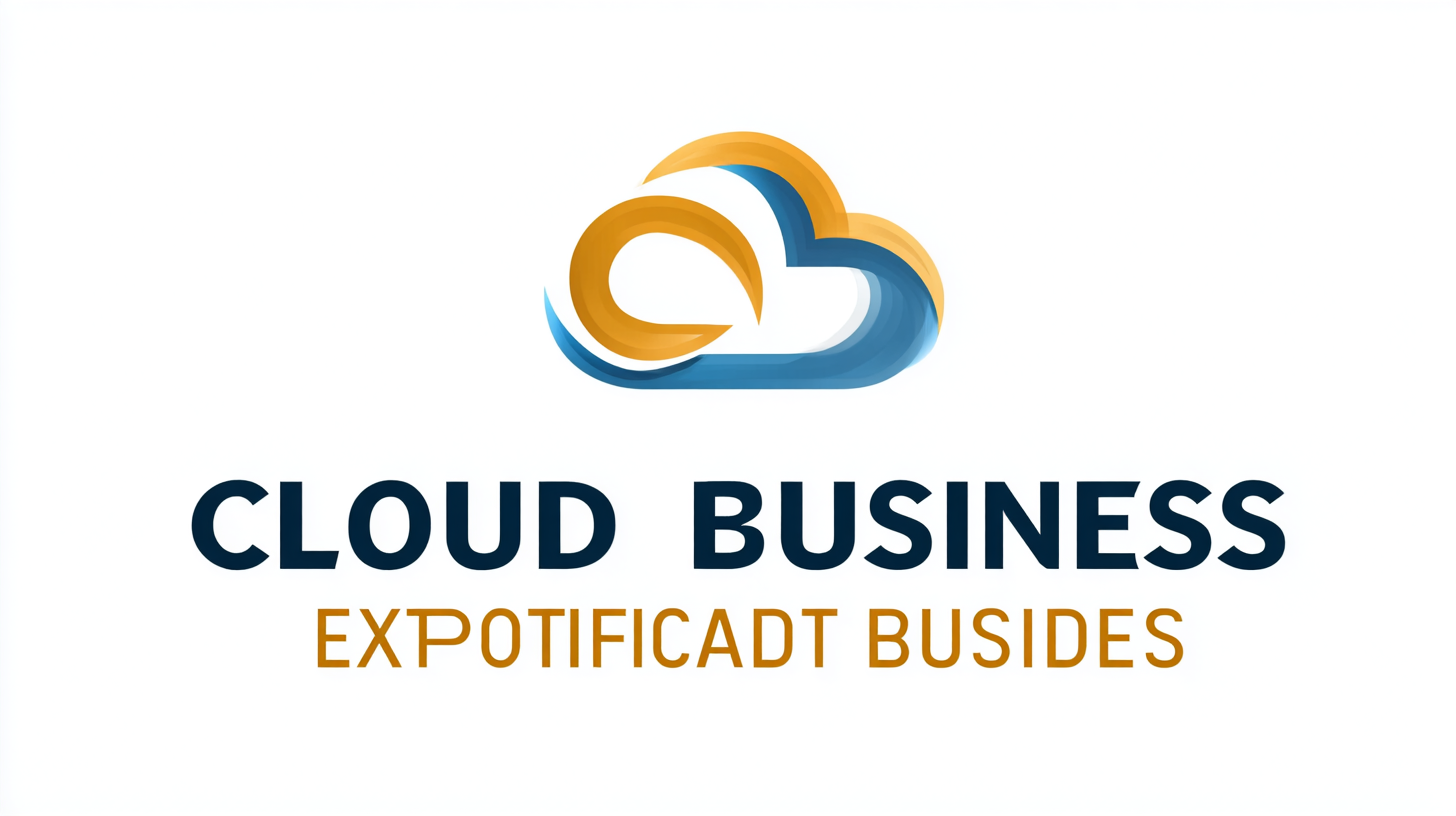Unlocking Export Certification for the Best Cloud Business A Comprehensive Tutorial Guide
In today's rapidly evolving digital landscape, the significance of exporting cloud-based solutions has never been more pronounced. The global cloud computing market is projected to reach $1.25 trillion by 2028, highlighting a robust growth trajectory that underscores the increasing reliance on cloud services by businesses worldwide.

For enterprises aiming to penetrate international markets, export certification becomes a critical component in ensuring compliance with regulatory standards and enhancing credibility. By unlocking export certification, cloud businesses can not only streamline their operations but also access new market opportunities, mitigate risks, and improve customer trust.
This comprehensive tutorial guide will delve into the myriad benefits of export certification, empowering cloud businesses to navigate the complexities of cross-border operations with confidence.
Understanding Export Certification: Importance for Cloud Businesses
 Export certification is a critical aspect for cloud businesses looking to expand their operations internationally. As companies leverage cloud technologies, understanding the intricacies of export compliance becomes essential. Export certification not only ensures adherence to legal requirements but also helps businesses mitigate risks associated with international trade. It provides a framework through which cloud service providers can verify that their solutions comply with the specific regulations of different countries, thereby safeguarding their operations and fostering trust among international clients.
Export certification is a critical aspect for cloud businesses looking to expand their operations internationally. As companies leverage cloud technologies, understanding the intricacies of export compliance becomes essential. Export certification not only ensures adherence to legal requirements but also helps businesses mitigate risks associated with international trade. It provides a framework through which cloud service providers can verify that their solutions comply with the specific regulations of different countries, thereby safeguarding their operations and fostering trust among international clients.
Furthermore, the significance of export certification extends beyond mere legal compliance. It enhances a company's reputation in the competitive cloud market, signaling to potential clients that the business prioritizes regulatory adherence and security. This certification also opens doors to new markets, as many countries require proof of compliance before allowing foreign cloud services to operate within their borders. By obtaining export certification, cloud businesses position themselves as reliable and responsible providers in the global arena, facilitating smoother transactions and partnerships while paving the way for growth in a diverse range of international markets.
Key Types of Export Certifications Relevant to Cloud Services
Export certifications are critical for cloud service providers aiming to navigate international markets successfully. These certifications serve as a framework ensuring compliance with international regulations and standards, which can ultimately enhance the credibility of cloud services on a global scale. According to the International Data Corporation (IDC), cloud service spending is projected to reach $1.3 trillion by 2025, highlighting the urgency for providers to adopt relevant export certifications to capitalize on this growing market.
Key export certifications relevant to cloud services include the General Data Protection Regulation (GDPR) compliance, which is essential for businesses operating within or interacting with the European Union. GDPR mandates strict data handling and privacy practices, affecting how services are provided and marketed. Additionally, the ISO/IEC 27001 certification, focusing on information security management, is becoming increasingly vital as security concerns rise. Reports indicate that organizations adopting ISO 27001 improve their risk management strategies by up to 30%, underscoring the importance of stringent security protocols in gaining Customer trust across borders. By obtaining these certifications, cloud businesses position themselves not only as compliant players but also as leaders in security and privacy standards within the industry.
Unlocking Export Certification for the Best Cloud Business: A Comprehensive Tutorial Guide - Key Types of Export Certifications Relevant to Cloud Services
| Certification Type | Description | Key Benefits | Relevance to Cloud Services |
|---|---|---|---|
| ISO 27001 | International standard for information security management systems (ISMS). | Improved security, compliance with regulations, enhanced customer trust. | Crucial for cloud service providers to ensure data protection. |
| SOC 2 | Framework for managing customer data based on five trust service principles. | Demonstrates commitment to data protection and operational integrity. | Relevant for SaaS companies and cloud storage providers. |
| GDPR Compliance | Regulation on data protection and privacy in the European Union. | Avoids hefty fines, enhances customer trust in EU markets. | Crucial for any cloud service handling EU resident data. |
| HIPAA Compliance | U.S. law designed to provide privacy standards to protect patients' medical records. | Facilitates trust with healthcare clients and compliance with regulations. | Essential for cloud services storing or processing health information. |
| PCI DSS | Payment Card Industry Data Security Standard for organizations that handle credit cards. | Reduces risk of data breaches, protects cardholder data. | Critical for cloud services dealing with payment processing and transactions. |
Step-by-Step Guide to Obtain Export Certification
Obtaining export certification can be a daunting task, especially for businesses operating in the cloud sector. This step-by-step guide is designed to simplify the process and help you navigate the complex requirements. First, it’s crucial to understand the specific certification needed for your type of cloud service. Research the regulations and standards applicable in your target markets, as these can vary significantly. Ensure you gather all necessary documentation, such as technical specifications and compliance reports, early in the process.
Tip: Start by reaching out to industry experts or consultants who specialize in export certifications. Their insights can provide invaluable guidance and help you avoid common pitfalls.
Once you’ve determined your certification requirements, the next step is to prepare for the application process. This often involves demonstrating compliance with industry standards and completing specific assessments. Attend workshops or webinars to broaden your understanding of best practices in export certification. Engage with other businesses that have successfully navigated this process; their shared experiences can provide practical tips.
Tip: Create a checklist of all required documents and milestones to stay organized and ensure nothing is overlooked as you work toward certification. This proactive approach will streamline your efforts and boost your chances of swift approval.
Challenges in the Export Certification Process and How to Overcome Them
Navigating the export certification process can often feel like a daunting task for cloud businesses looking to expand their global reach. One of the significant challenges in this endeavor is adhering to complex regulations that vary widely across different markets. For instance, as countries like Vietnam face stringent quality controls on exports such as durians, businesses must be well-prepared to meet these guidelines to avoid delays and ensure market access.
To overcome these hurdles, companies can implement a well-structured export compliance program. A proactive approach includes regularly updating knowledge about export regulations, engaging with legal experts, and leveraging technology for efficient documentation management. Integrating compliance into the business strategy is crucial; reports indicate that companies with robust compliance frameworks experience a 60% reduction in certification delays.
**Tips:**
1. Always stay informed about the latest regulatory changes in target markets to ensure compliance and avoid potential fines.
2. Utilize resources such as trade associations and government export promotion agencies, which offer valuable insights and guidance.
3. Invest in training programs for your team to cultivate an understanding of export certification requirements and mitigate management challenges effectively.

Best Practices for Maintaining Compliance in Export Certification
Navigating the complexities of export certification is essential for cloud businesses aiming to tap into international markets. Compliance with export regulations not only safeguards your operations but also enhances your reputation among clients and partners. One of the best practices for maintaining compliance is to conduct regular audits of your export processes. These audits help identify potential gaps in your practices and ensure that your team is well-versed in current regulations and requirements.
Another crucial aspect is keeping abreast of changes in legislation and global trade policies. Export regulations can shift rapidly, and it’s important to establish a system for monitoring updates. This could involve subscribing to industry newsletters or joining professional organizations that offer resources and support. Additionally, consider implementing a robust training program for your staff to foster an organization-wide culture of compliance. By prioritizing education and staying informed, you can significantly mitigate risks associated with non-compliance and streamline your export certification process.
Export Certification Compliance Metrics
Taylored Systems serves Indiana businesses in Anderson, Avon, Bloomington, Brownsburg, Carmel, Columbus, Crawfordsville, Fishers, Franklin, Greenfield, Greenwood, Indianapolis, Kokomo, Lafayette, Lebanon, Marion, Martinsville, Mooresville, Muncie, New Castle, Noblesville, Plainfield, Richmond, Shelbyville, Westfield, Whitestown, and Zionsville.
